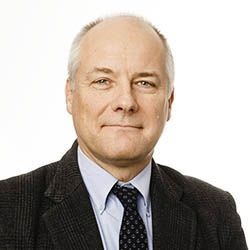IFAD and Uzbekistan bring improved incomes and livelihoods to the Fergana valley
IFAD Asset Request Portlet
Asset Publisher
IFAD and Uzbekistan bring improved incomes and livelihoods to the Fergana valley
04 August 2020Rome and Tashkent, 4 August 2020 – Uzbekistan is one of the five most agriculture-dependent countries in the world, where the sector accounts for 35 per cent of GDP and about 40 per cent of employment. Seventy-five per cent of the country’s lower income people live in rural areas and, though rural poverty has decreased in recent years, several challenges remain pertinent. More than 375,000 rural people in eastern Uzbekistan’s Fergana valley will benefit from new financing that aims to increase their incomes through the introduction of modern farming techniques, provide access to long-term financing for agriculture, and create jobs in rural areas.
Inclusive and profitable value chains, accessible markets and modern, climate-resilient rural infrastructure will enable dehkan farmers (small household plots) to diversify agricultural production from low to high value crops, increase land productivity and address challenges of drought due to climate change.
The US$47 million investment provides additional financing to the ongoing Agriculture Diversification and Modernization Project (ADMP). Gilbert F. Houngbo, President of the International Fund for Agricultural Development of the United Nations (IFAD), and Sardor Uktamovich Umurzakov, Deputy Prime Minister and Minister for Investment and Foreign Trade met virtually to sign the financing agreement on 4 August.
ADMP has a total project value of $356.9 million, of which $93.5 million is from IFAD. In addition to the new top-up loan of $46.2 million, IFAD has financed the project with a loan of US$ 46.2 million (original loan), a grant (original) of $0.3 million, and a grant (additional top up grant) of $0.8 million. The World Bank cofinanced the project with a loan of $200 million. Moreover, US$63.4 million is provided through domestic cofinancing, including $24.5 million from the government, $19.4 million from beneficiary contributions and $19.5 million financing from participant financing institutions.
The Uzbek economy has been one of the best performers in the world in recent years, with economic growth averaging 8 per cent for the past ten years. However, since March 2020, the economic outlook has worsened as a result of the COVID-19 outbreak. “The crisis has created challenges that significantly impact the poverty levels in rural areas. IFAD is working in close partnership with the Uzbek government to help offset the economic and social implications of the pandemic,” said Vrej Jijyan, IFAD Country Director for Uzbekistan.
The overarching goal of the ADMP project, currently in the second year of its implementation, is to create a business environment that enables increased productivity and market access for small-scale agribusinesses and rural enterprises in value chain systems. It will link the agribusinesses to rural households of dehkan farms and small-scale producers engaged in horticulture and livestock. The project will pay special attention to ensuring the participation of female-headed households, as well as to reach out to young women.
Uzbekistan joined IFAD in 2011. Since 2014, IFAD has supported three investment projects totalling more than $435.3 million ($128.7 million from IFAD) and directly targeting about 105,000 rural families.
Contact:
Bruce Murphy, Communication Team Leader, Content Development Team, IFAD Communications Division
Tel.: +39 06 54592693 / Mob: +39 3316809203
E-mail: [email protected]
Press release No.: IFAD/38/2020
IFAD invests in rural people, empowering them to reduce poverty, increase food security, improve nutrition and strengthen resilience. Since 1978, we have provided US$22.4 billion in grants and low-interest loans to projects that have reached an estimated 512 million people. IFAD is an international financial institution and a United Nations specialized agency based in Rome – the United Nations food and agriculture hub.
More about IFAD: www.ifad.org.
